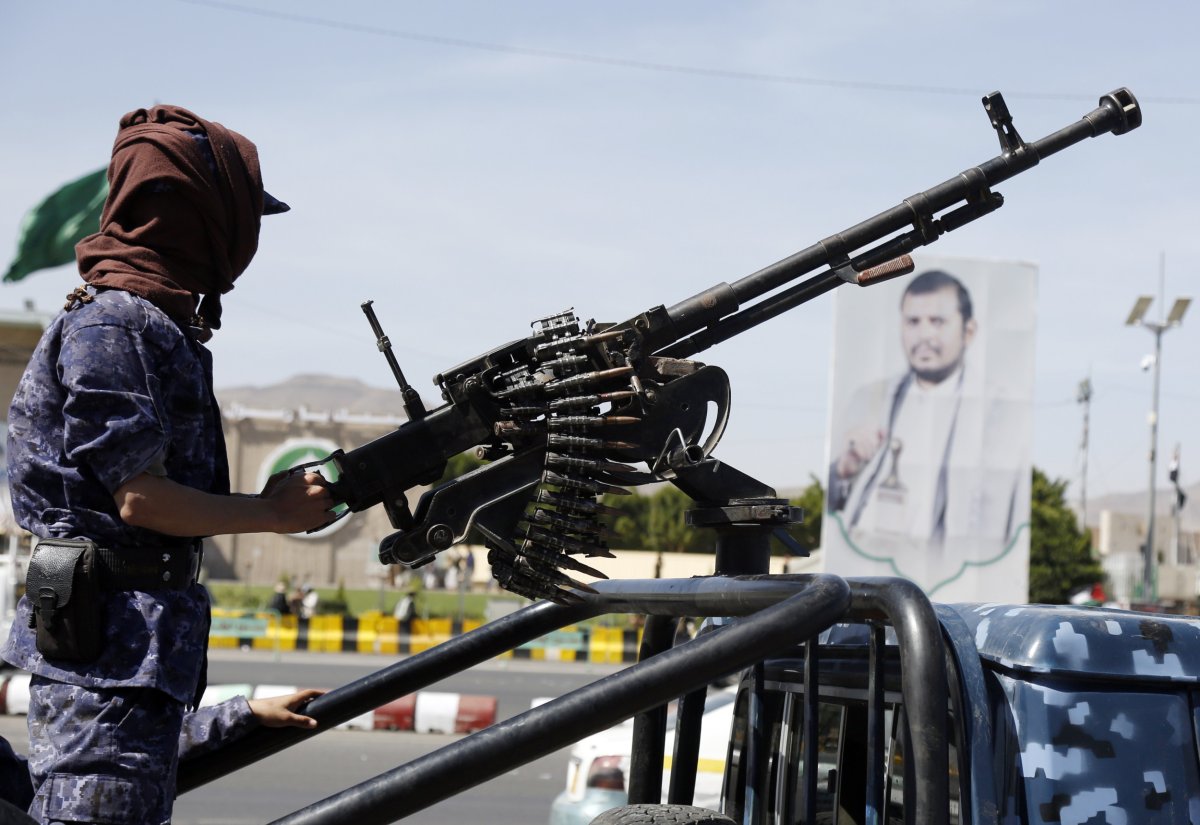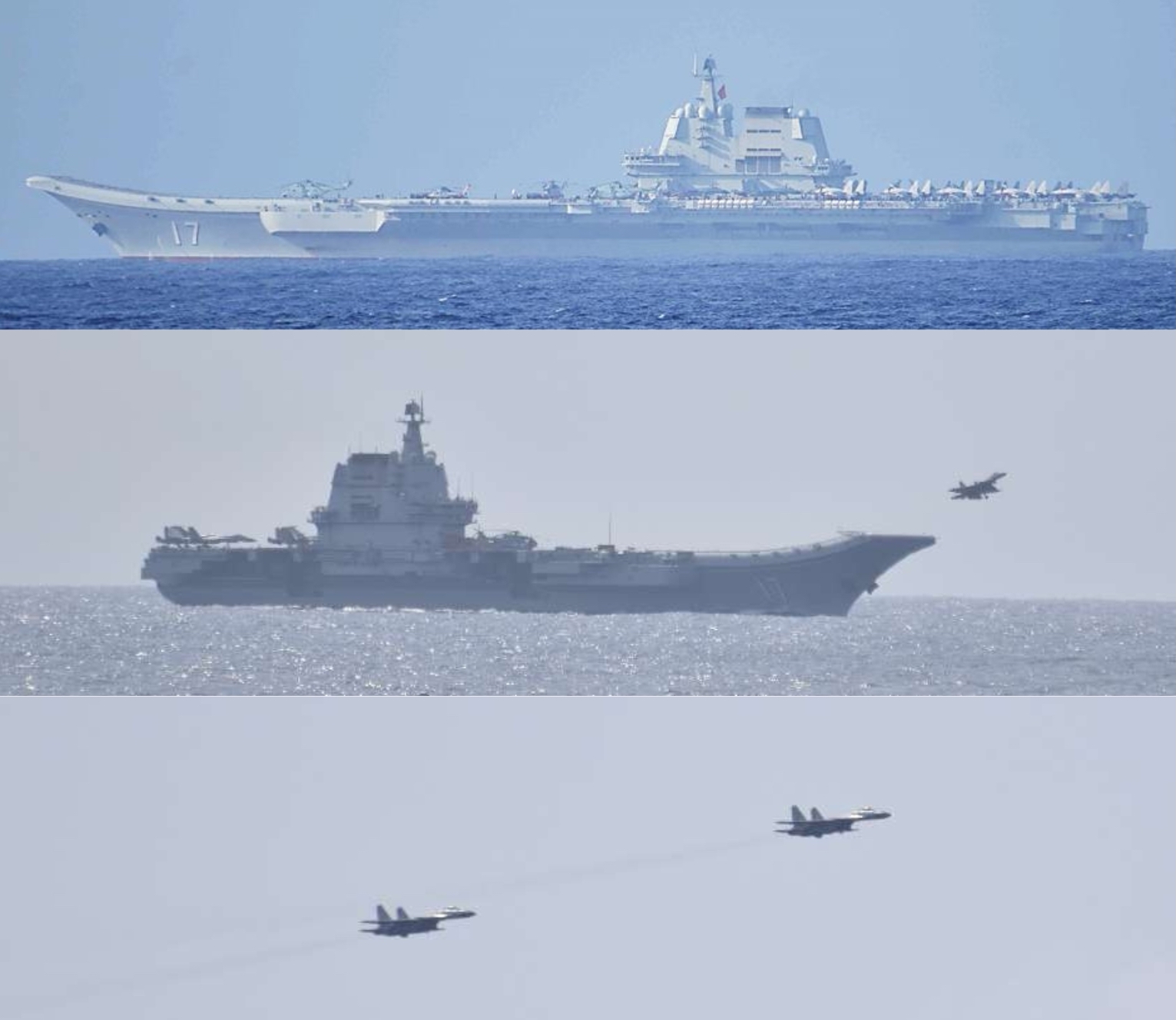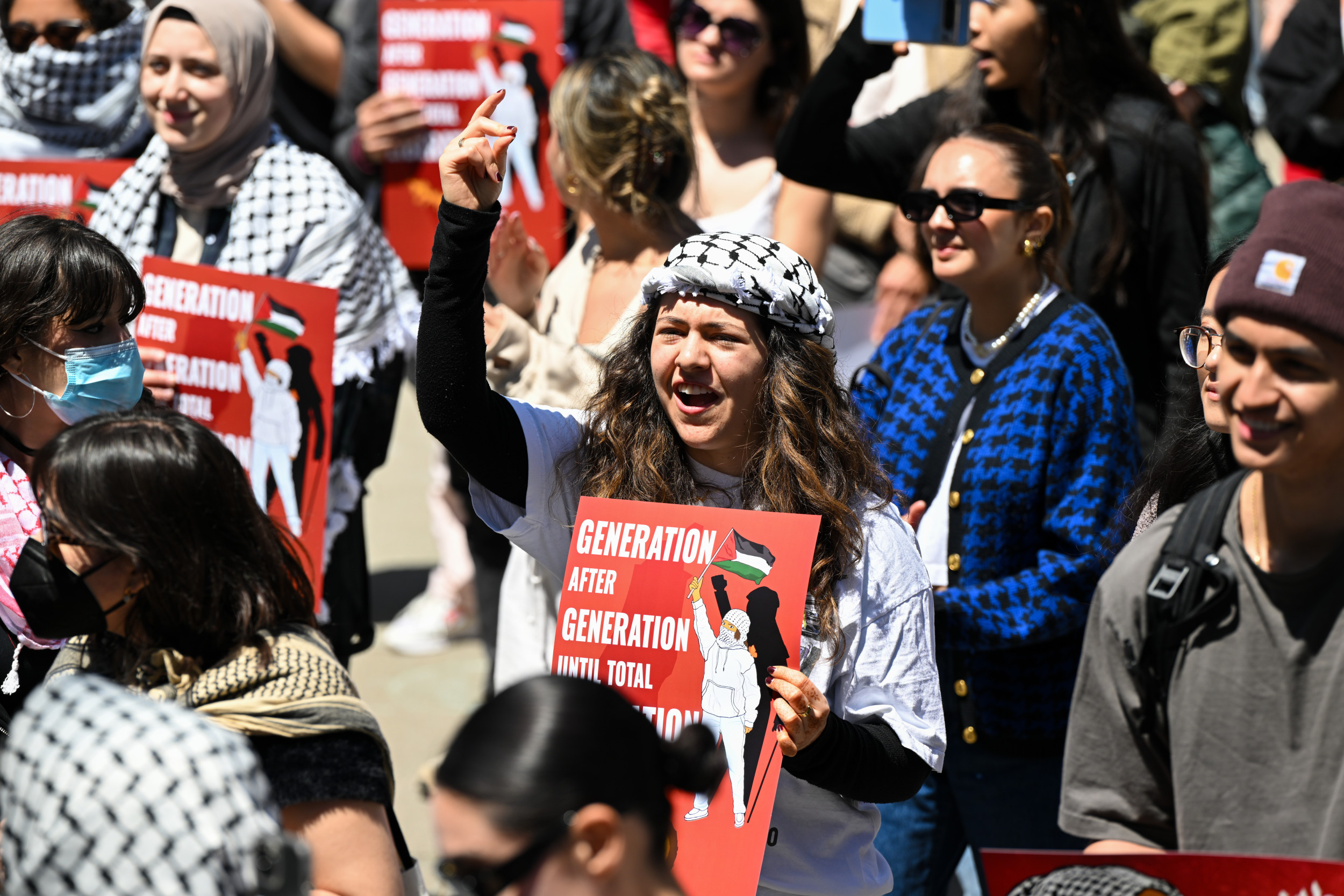Iran-aligned militias in Iraq and Yemen have declared their readiness to escalate attacks on Israel and its allies should Israel resume its war with the Palestinian Hamas movement in the Gaza Strip once a temporary truce expires.
With just hours left before the week-long ceasefire ends, the Islamic Resistance in Iraq and Yemen's Ansar Allah, also known as the Houthis, issued separate statements Thursday threatening to expand a campaign of missile, rocket and drone attacks that has targeted Israel and U.S. troops in Iraq and Syria.
"The Zionist massacres and brutal genocide that the Palestinian people have been subjected to are outside of the cycle of war run by American against the people of Gaza and southern Lebanon," the Islamic Resistance in Iraq said in its statement.
"As the Islamic Resistance in Iraq affirms that it will not leave its people in this war to face the tyrants of the world alone, it declares its readiness and preparedness to escalate military operations inside and outside of Iraq if the American enemy insists on the continuation of the Zionist killing machine, whether in steadfast Gaza or in proud southern Lebanon."
The Islamic Resistance in Iraq, which is comprised of numerous influential militias in Iraq, has claimed some 75 attacks against U.S. troops in Iraq and Syria and three against Israel over the course of five weeks prior to last week's ceasefire.
From Yemen, Ansar Allah has fired long-range missiles and drones against Israel, seized commercial ships with ties to Israel in the Red Sea and downed a U.S. spy drone operating off the Yemeni coast.
Shortly before the news from Iraq on Tuesday, Ansar Allah military spokesperson Yahya Sare'e declared the group's forces Yemeni "will not hesitate to expand their military operations against the Israeli entity to include targets that they do not expect on land or at sea."

Newsweek has reached out to the Israel Defense Forces (IDF) and the U.S. Department of Defense for comment.
Shortly before the statements, which came within roughly a half an hour from one another, the IDF reported that "an interceptor was launched following a suspicious identification inside Israeli airspace over southern Israel" without providing further details. The incident, which was said to have triggered an air alert, "is under review," the IDF said.
Also on Thursday, unverified reports emerged of explosions rocking the Yemeni capital of Sanaa. A Pentagon spokesperson told Newsweek, "The U.S. military did not conduct these strikes in Yemen."
Ansar Allah's role in the Israel-Hamas war that began October 7 with an unprecedented assault by Palestinian fighters against Israel comes as Yemen's civil war is in a lull owing to a ceasefire between the rebels that rule Sanaa and the Saudi-backed internationally recognized government-in-exile.
U.S. warships have intercepted salvos of Ansar Allah missiles believed to be targeting Israel from Yemen and, on Sunday, intervened to stop an attempted hijacking of a vessel in the Red Sea in an episode during which missiles were fired.
The U.S. has also conducted several rounds of airstrikes against suspected Iran-linked militias in Iraq and Syria, including back-to-back strikes in Iraq that led to Baghdad's condemnation of both sides. Many of the factions believed to be part of the Islamic Resistance in Iraq, including Kataib Hezbollah, are members of the Iraqi military-linked Popular Mobilization Forces, though they often operate autonomously.
Pentagon spokesperson Sabrina Singh asserted told a press conference on Thursday that, "when it comes to drones or other equipment, we have been very clear from the beginning that Iran equips, funds, supports, trains various IRGC [Islamic Revolutionary Guard Corps] militia groups, has supported the Houthis, has supported Hezbollah."
The IDF, for its part, has for years conducted a semi-covert campaign of airstrikes against suspected Iran-linked targets in Syria, sometimes referred to as the "war between wars," and has also been widely suspected of being behind strikes in Iraq as well. Like the U.S., Israel has warned both Iran and allied militias from getting involved in the conflict.
Iran has repeatedly denied having command and control over "Axis of Resistance" groups operating across the region but has lauded the actions of such forces.
Speaking at a gathering of Iran's paramilitary Basij organization on Thursday, IRGC Major General Hossein Salami argued that, if another attack was launched in the style of October 7, then Israel would be defeated "in only around 48 hours."
Uncommon Knowledge
Newsweek is committed to challenging conventional wisdom and finding connections in the search for common ground.
Newsweek is committed to challenging conventional wisdom and finding connections in the search for common ground.
About the writer
Based in his hometown of Staten Island, New York City, Tom O'Connor is an award-winning Senior Writer of Foreign Policy ... Read more
To read how Newsweek uses AI as a newsroom tool, Click here.








